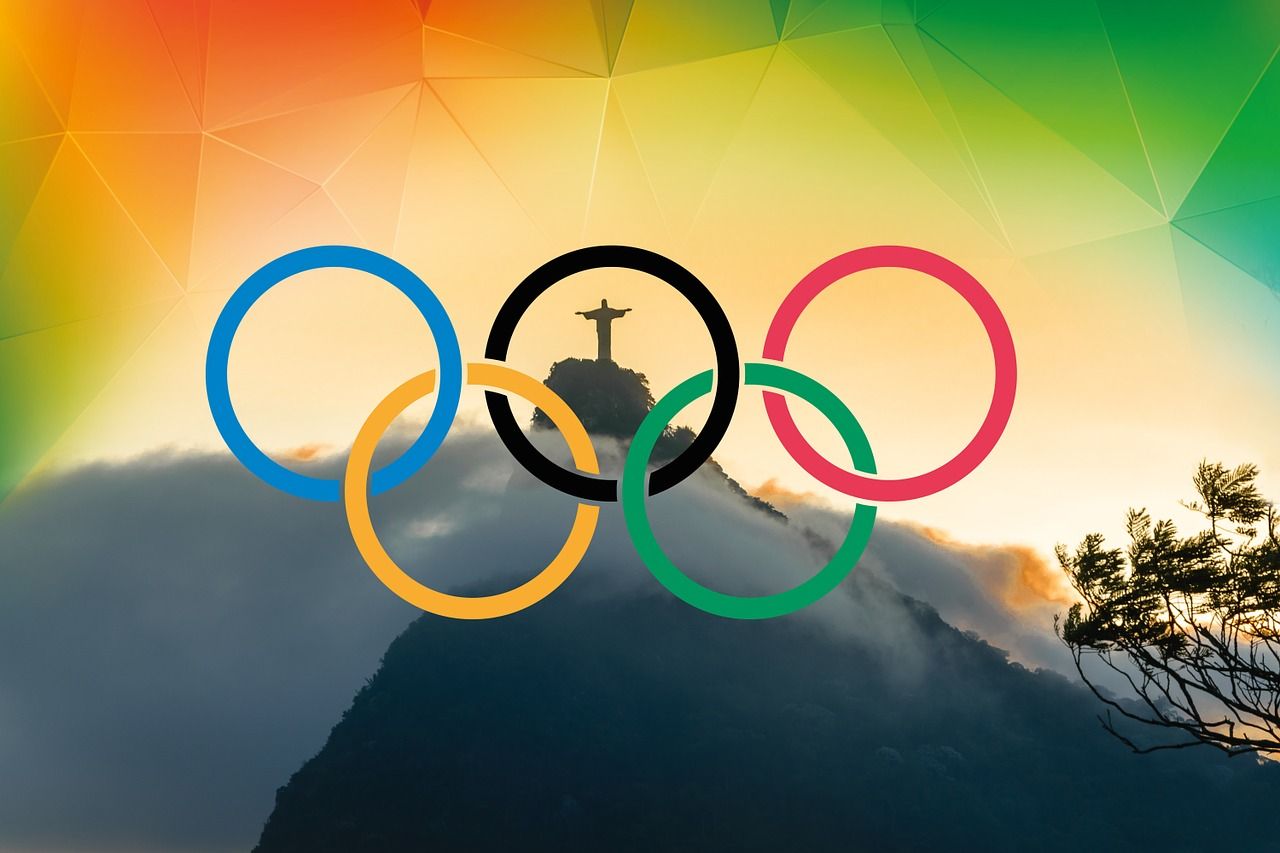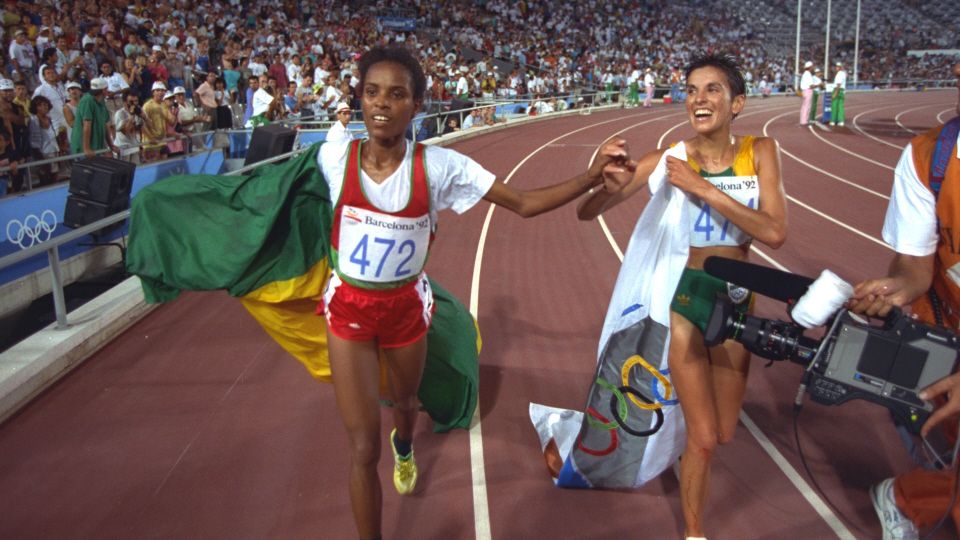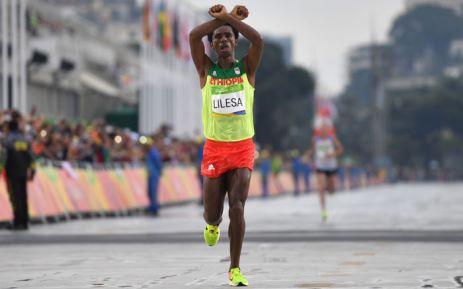I was 10 when I watched my first Olympics. I think it was for some pretty obvious reasons. Twelve reasons to be exact: all pertaining to the Dream Team. It was the first time professional basketball players could participate in the Olympic games.
Barcelona. I would never forget the name. I would also never forget the outcome. Gold for basketball. I didn't know who won what after that. I also didn't pay attention to the other sports or their outcomes.
I looked back a little on what happened in those Olympic Games and it is so interesting how little you know about the world in the grand scheme of things when you're 11. Apartheid had dissolved in South Africa, so competition wasn't restricted to whites only from that country. The Berlin Wall had fallen a year after the 1988 Olympics, so this was the first Olympics in the post-World War II era that Germany was a whole state - bringing East and West Germany back together. Russia's Communism ended and the Soviet Union was dismantled into 15 different countries.
As a kid, I didn't think about any of that. I wasn't concerned with the troubles of the world, because I didn't know anything about them. And besides, I was 10. What could I do?
Six Olympic games later (or 24 years later) and the Games in Rio ended last night. I hope, if you watched them, that you enjoyed them as much as I did.

Leading up to the Games, there was plenty of worry about what would take place once the Games came to Brazil. The country has been tarnished by corruption and economical upheavals, after having prospered so strongly in recent years. I was concerned because I loosely followed the news and updates of Brazil and her president, Dilma Rousseff. But the Games went on without much of a hitch - as far as from the perspective provided by the TV screen, and America looked its usual dominant self. The men's basketball team won gold again, for the third straight time, but unlike 1992, this Dream Team didn't really captivate my interest.
My interest was in the other sports: swimming, gymnastics, volleyball, and track and field, among others. At times, there was a little bit of me that rooted for other countries. Ones that had never won gold, or anything for that matter. I was inspired when Brazil took silver and bronze in the men's floor exercises. I was rooting for Oleg Verniaiev, of Ukraine, during the men's individual all-around gymnastics competition, because of what his fellow-countryman did. He won the silver in dramatic fashion, behind Kōhei Uchimura, who is considered to be the greatest ever.
It really was a very good Olympics, especially getting to watch Michael Phelps, Katie Ledecky, and Simone Biles (and the rest of the women's gymnastics team). All of them were truly inspiring. And then I received a return to 1992.

During the women's 10,000m race in Barcelona, Derartu Tulu, of Ethiopia, won, and then waited for opponent Elana Meyer, of South Africa, who won second. They both, hand-in-hand, ran around the track letting everyone know at the Games and around the world that Africa was turning the page on its history. I don't remember this moment from when I watched 24 years ago. If it wasn't on the court, then I didn't see it.
I watched most of what happened in this year's Olympics, but I didn't see Feyisa Lilesa cross the finish line for silver in the men's marathon competition. He, too, is from Ethiopia, but his finale went a bit differently. Instead of showing how far Africa had come, he was demonstrating how far it had to go - Ethiopia, specifically.
Lilesa is part of the Oromo tribe in Ethiopia. This tribe is being persecuted for its dissent to the Ethiopian government in its attempt to reallocate Oromo land. Persecuted by imprisonment and execution. As Lilesa crossed the finish line, he made an X with his arms, a symbol of defiance to the Ethiopian government and a sign to let us know what is happening in a country very far from ours.

I applaud Lilesa's bravery. I understand the bravery from a textbook point of view, but not from a personal point of view. So I look at all the pictures and articles that have been posted regarding this brave act that will most definitely keep him from returning to Ethiopia, unless he wishes to risk certain imprisonment or possible death, and I am transferred back to 1992. I am not drawn back 24 years prior because of the similarities of the two races. I am drawn back because of the similar feelings I have about the two moments.
At 34, I am concerned with the troubles of the world, because I know so much about them. But I still feel very much like an 10-year-old boy. Rather incapable of helping. The only thing I feel I can do is bring the issue to your attention. Maybe knowing that someone is there, even if just in spirit, is enough for someone like Lilesa. I can't join him in a trot around the track, but I can lend him my written support. Although I know it does very little to change anything, maybe it will do more than doing nothing at all.